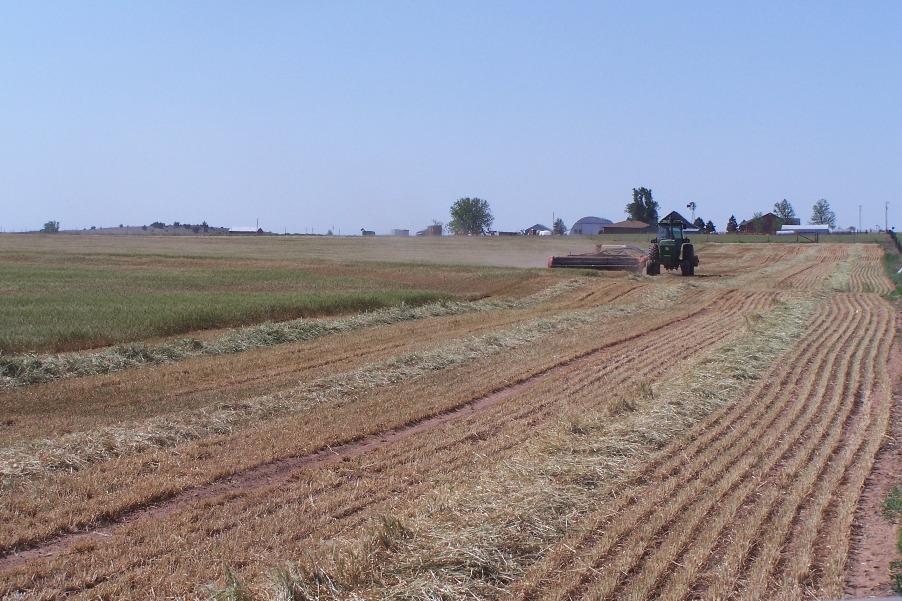
Agricultural News
USDA Report Warns Climate Change Likely to Impede Progress on Global Food Security
Wed, 02 Dec 2015 08:51:15 CST

Climate change is likely to impede progress on reducing undernourishment around the world in the decades ahead, according to a major scientific assessment released today by the U.S. Department of Agriculture (USDA) on global food security and its implications for the United States. The report, entitled Climate Change, Global Food Security and the U.S. Food System, identifies the risks that climate change poses to global food security and the challenges facing farmers and consumers in adapting to changing climate conditions. Secretary Vilsack released the report during the COP-21 Paris Climate Conference.
In the absence of response measures, climate change is likely to diminish continued progress on global food security through production disruption that lead to constraints on local availability and price increases, interrupted transport conduits, and diminished food safety, among other causes. The risks are greatest for the global poor and in tropical regions.
President Obama has pledged to reduce U.S. greenhouse gas emissions in the range of 26-28 percent below 2005 levels by 2025. U.S. agriculture is helping meet this goal, and American farmers, ranchers and foresters have demonstrated their leadership in recognition that their contributions send a strong message to the rest of the world.
"The past six years have been a success story in terms of global food security. Two hundred million fewer people are food insecure today than they were six years ago. The challenge we now face is whether we can maintain and even accelerate this progress despite the threats from climate change," said Agriculture Secretary Tom Vilsack. "The report we are releasing today highlights these challenges and offers pathways to avoid the most damaging effects of climate change."
"The report found that climate change is likely to cause disruptions in food production and a decrease in food safety, which in turn leads to local availability limitations and increases in food prices, with these risks greatest for the global poor and in tropical regions," said Dr. John Holdren, Assistant to the President or Science and Technology and Director of the White House Office of Science and Technology Policy. "Accurately identifying needs and vulnerabilities, and effectively targeting adaptive practices and technologies across the full scope of the food system, are central to improving global food security in a changing climate."
Food systems in the United States benefit from a large area of arable land, high agricultural yields, vast integrated transportation systems, and a high level of overall economic development. However, changes in climate are expected to affect U.S. consumers and producers by altering the type and price of food imports from other regions of the world, as well as by changing export demand, and transportation, processing, storage, infrastructure that enable global trade.
Climate risks to food security increase as the magnitude and rate of climate change increase. Higher emissions and concentrations of greenhouse gases are much more likely to have damaging effects than lower emissions and concentrations. The author team reviewed a range of scenarios. Under scenarios with continued increases in greenhouse gas emissions the number of people at risk of undernourishment would increase by as much as 175 million above today's level by 2080. Scenarios with lower population growth and more robust economic growth coupled with lower greenhouse gas emissions resulted in large reductions in the number of food insecure people compared to today. Even in these scenarios, higher greenhouse gas emissions resulted in more food insecurity than lower emissions.
Effective adaptation can reduce food system vulnerability to climate change and reduce detrimental climate change effects on food security, but socioeconomic conditions can impede the adoption of technically feasible adaptation options. The agricultural sector has a strong record of adapting to changing conditions. There are many opportunities to strengthen agricultural economies and bring more advanced methods of crop production to low-yielding agricultural regions. Other promising adaptations include reducing food waste through innovative packaging, expanding cold storage to lengthen shelf life, and improving transportation infrastructure to move food more rapidly to markets.
On April 23rd, 2015, Agriculture Secretary Vilsack announced USDA's 10 Building Blocks for Climate Smart Agriculture, a comprehensive set of voluntary programs and initiatives that is expected to reduce net emissions and enhance carbon sequestration by over 120 million metric tons of CO2 equivalent by 2025 - about 2 percent of economy-wide emissions. The ten "building blocks" span a range of technologies and practices to reduce greenhouse gas emissions, increase carbon storage, and generate clean renewable energy. USDA also supports global food security through in-country capacity building, basic and applied research, and support for improved market information, statistics and analysis
WebReadyTM Powered by WireReady® NSI
Top Agricultural News
More Headlines...




















